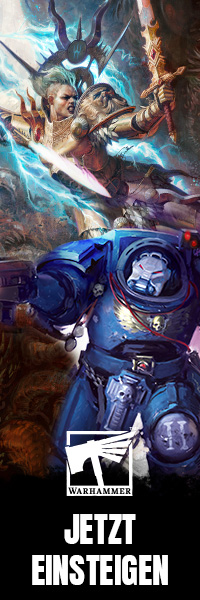Dystopian Wars: Frontline Despatches
Spartan Games haben neue Nachrichten bezüglich Dystopian Wars gepostet.
Frontline Despatches
The first five years of the world war have been a brutal affair, and as 1875 comes to a close we find ourselves evaluating its future. What does it hold for us all? What will the nations do next? How do they build upon their already mighty militaries?
It is fair to say that as the world war escalated, so the leaders of the great nations entered into an arms race of unprecedented scale. For several years the inventive genius of the Great Powers, their scientists, engineers and vast armies of workers, rolled out new and more incredible machines of war; some months seeing thirty or more new engines arriving on the front lines and falling with devastation on their enemies.
As more and more nations entered the war, the two giant alliances found their ranks swollen by the smaller nations looking to ‘do their bit’ or simply protect themselves from the enemies bordering their lands. But as with all wars, the pace of conflict eventually slowed, bogged down with the complexity of what such circumstances had created.
Social unrest abounded, driven by dwindling resources and wide-scale poverty. Soul-searching became commonplace, with the voices of the people asking, ‘what next? Where will the war go? What new and fatal technology can they yet unleash on us all?’ There would be no swift victory, no crushing triumph for any involved. This was a stalemate of murderous and monumental proportions, and all were searching in the bleakness of this desolate age for an answer to the conflict that had engulfed the world.
The Second Dystopian Age
The year 1876 marks a time of cataclysmic change for every nation of the Earth. The major powers occupy sea, land and sky with their mighty fleets. Titanic armies fight for Queen, Emperor or Visionary. All have a place in the fight for this world so far removed from what it once was. A different style of battle is needed to gain the edge in this bloody, endless conflict, and with it, more advanced machines of war.
The old ways have been replaced by a more focused methodology. Machines are no longer pumped out one after the other, each more ostentatious and expensive than the last. Once, the Battleship, the Land Ship and the Sky Fortress were extravagant symbols of glory, as well as military powers. Now, forged upon the anvil of this cruel and endless war, their descendants have taken on a more ruthless role.
These new instruments of malevolence are skilfully crafted predators – shark-like warships that cut through water like knives, seeking out and destroying underwater enemies, or flying vessels that strike fear into the hearts of air crews. Hardened by such aggressive years, the Admirals and Generals of this world are well-equipped to understand their enemies. All they know is war, and they know it well. Just as an engineer refines his expertise over time, so the old mechanics of war are being replaced with precision tools, commanded by merciless leaders. Armies are built like the weapons they are, created with a purpose and honed by technology, trained to target their foes like lethal hunters, to strike at every weak spot and counter all strength. No more will simple blunt force rule this conflict.
The greatest minds of each nation have learned much. They have turned their engineering prowess and industrial might to manufacturing weapons designed to strike at the vital organs of their foes. Their newest creations, gliding from slipways, taking to the air from hangars and rolling off factory floors, have been built to add deadly precision to their forces. Exploiting the weaknesses of their enemies, and striking at the hearts of their foes, these machines will change the way that future war will be fought.
The Changed World
The arrival of Element 270 (Sturginium) manifestly changed the world as we know it, but in recent years the world has been affected in ways that even the greatest scientific minds cannot yet explain. Unusual weather systems, the random appearance of strange anomalies, the melting of the polar ice-caps; all are signs of a world irrevocably changing as the war drags on.
The most significant impact has been in Antarctica itself. The collapse of the Ross Ice Shelf and a substantial reduction in ice depths across the continent have resulted in rising water levels around the world. This has caused population displacement on an unprecedented scale, with refugees from low laying coastal areas forced to seek new homes further inland. Other nations have been forced to engage in immense and huge construction efforts at vast cost simply to preserve what liveable territories they do control.
It has also had a major impact on agricultural production in many parts of the world, causing the salinisation of irrigation systems, and the contamination or flooding of arable land. Nations can scarcely feed their own people. Of course, the effect on naval facilities, shipping yards and construction facilities is of greater concern in this bloody and mercenary age.
Perhaps connected to the rising seas is the increase in the number and severity of extreme weather patterns. Once squalls or storms would cause discomfort and the occasional flood, hurricane or fire. Such storms have now become torrents, and the lethal power unleashed by these extreme weather systems is wreaking increased havoc, damage and desolation around the world.
There is also sickness and death, likened to the times of the Black Plague itself by those looking to generate hysteria and feed the growing unrest. Some believe Sturginium itself is responsible for the sickness spreading across nations, considering it an ungodly and tainted aberration, whilst workers dealing directly with Element 270 are reportedly suffering in statistically higher numbers.
Many who die from this new plague suffer an excruciating wasting of their bodies, followed by horrific sickness and organ failure. Industry power-brokers and politicians alike are quick to downplay any link between this new sickness and the element Sturginium, with many attempting to use the outbreaks to stoke war fever, blaming devious chemical and viral weaponry unleashed by their foes.
But many suspect otherwise, and across the world tension simmers, particularly among the working classes; the fear that this ‘wondrous’ element could be what poisons them is only adding fuel to an already tinder-dry situation.
Whatever the truth, it is clear that against this dark backdrop of war, other, stranger threats are also to play out, and all nations are feeling the anguish of this unending conflict. Resources are dwindling under the pressure of the war and a changing world. Only time will tell if human ingenuity and revolutionary technology can prevail against an increasingly rebellious natural order.
Where once great nations flourished in the Sturginium Age, and life was improved for all, there is now food rationing, widespread poverty, sickness and ever-mounting lists of the dead.
Nations are now under immense pressure to not only stoke the flames of war and protect their sovereign borders, but to rebuild their economies, find resources and insulate their people from these dark threats.
And from the smog-shrouded industrial heartlands of Central Europe and the British Isles, barricaded and besieged by battle-lines and roiling seas alike, came the first moves in a deadly new game of military and political power play.
Untapped Resources
With the critical resources of their own lands dwindling, the Great Nations were striking out in search of new supplies; both to exploit for themselves and to deny their enemies. With Sturginium top of their priority list, all eyes turned to the world’s second largest continent – Africa.
At nearly twelve million square miles these lands offered many untapped resources prime for exploitation. Nations began preparing numerous military assets to explore and capture the lands of Africa, ranging from small teams of Colonial Expeditionary Forces to huge naval Battle Groups. The contention for African control had truly begun.
The Kingdom of Britannia was the first nation to make a major play, despatching a vast naval force for the Gulf of Guinea on the African Gold Coast. Quick to respond, a Prussian Empire naval force made a perilous journey from the Mediterranean, passing through the Suez Canal and sailing down the eastern seaboard of Africa with all speed. Hampered by a freak tropical storm, which saw several ships lost and a series of running battles with Britannian naval patrols operating out of India, the flotilla was battered as it made for its ultimate destination, the isle of Madagascar.
The Britannians in the west, though untroubled by attacks, also suffered grievously from the unnaturally fierce storms plaguing the mid-Atlantic.
Although many vessels from both sides were destroyed, communications made it back to Berlin that the enemy armada contained vast numbers of seemingly civilian merchant vessels and landing craft. The Prussian Admiral in command reported that it looked like “the Britannians had arrived with the intent of making a new home!”
In fact, the force had arrived with the purpose of establishing a fortified military base at Batonga from which ground forces could strike out through the unexplored lands to the east of Lower Guinea and cut south into the Congo. The naval force was to establish a zone of control around the base. Over seventy vessels were assigned to a role that the Britannian Government deemed “of absolute importance to the survival of the Empire.”
This move left the Prussians grievously concerned. They had established their own forward base on Madagascar, Conradsburg, and begun tentative explorations from Mozambique. The Prussians had sent out several dozen Exploration Patrols to identify key areas in the unexplored interior that could be captured and controlled. These teams were each led by a seasoned military officer, backed up by a section or two of infantry and tasked with protecting key scientists.
With key players in both great alliances now staking their claims, other powers are beginning to take note, quickly planning their own expeditions destined for the vast continent.
The war for Africa had now well and truly begun…
In our next instalment of Frontline Despatches, we take a closer look at the naval encounter between the Kingdom of Britannia and Prussian Empire navies, detailing a scenario that can be played using the Dystopian Wars 2.0 rules or Fleet Action.
We’ll also introduce you to Captain Roger Hamilton and Hauptmann Gerhard Guber, two officers leading expeditions into the heartland of Africa.
Quelle: Spartan Games






Es wäre schön, wenn es Spartan Games noch einmal schaffen würde, Dystopian Wars neues Leben einzuhauchen. Denn schlecht ist das Spielsystem keinesfalls und es hat auch einen meiner Meinun nach starken Hintergrund. Bei den Seegefechten hatte ich jedenfalls immer sehr viel Spaß und die Miniaturen sind auch heute noch sehr schick.
Mal sehen, was ein mögliches neues Starterset zu bieten hätte. Preußen vs. Briten wäre jedenfalls meine Wunschkombination.